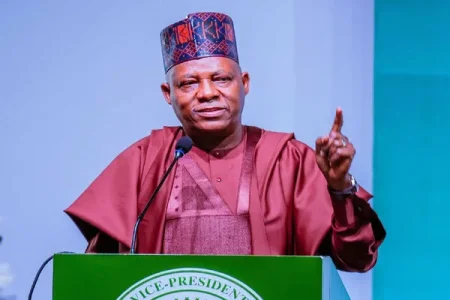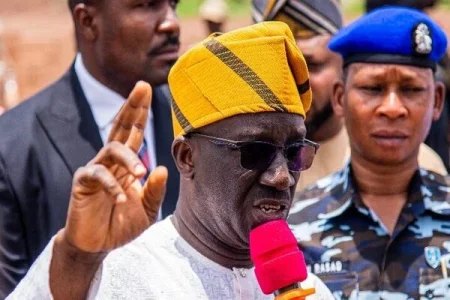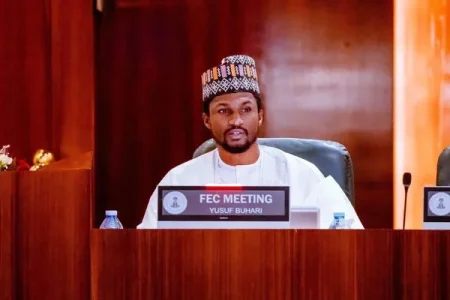
Vice-President Kashim Shettima has recently addressed Nigeria's economic challenges, attributing them to the policies of the previous administration under President Muhammadu Buhari. Speaking at the 2nd Chronicle Roundtable in Abuja, Shettima emphasized that the economic crisis inherited by President Bola Ahmed Tinubu's administration was akin to a "death sentence." He stressed that the decisions made by the current government were necessary to navigate through the stormy economic waters.
Shettima highlighted the removal of fuel subsidy as a critical step taken by the Tinubu government, citing the unsustainable nature of subsidizing fuel consumption not only for Nigeria but for the entire West African subregion. He acknowledged the immediate humanitarian challenges resulting from this decision but reiterated the importance of looking towards long-term economic stability.
Moreover, Shettima underscored the collaboration between Nigeria and the United Nations to achieve the Sustainable Development Goals (SDGs). He emphasized the pivotal role of Nigeria in the progress of Africa, with the success or failure of the nation impacting the entire continent. The UN Resident and Humanitarian Coordinator in Nigeria, Mr. Mohammed Fall, echoed this sentiment, expressing the UN's commitment to supporting Nigeria's reforms and initiatives.
In response to concerns about the impact of economic reforms on vulnerable populations, both Shettima and Fall emphasized the need for social protection programs to mitigate adverse effects. They discussed plans for a humanitarian response plan aimed at transitioning towards long-term development while addressing immediate vulnerabilities.
Overall, Shettima's remarks shed light on the complex economic landscape inherited by the Tinubu administration and the proactive measures being taken to steer Nigeria toward sustainable growth and development




